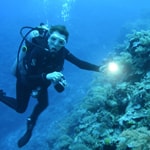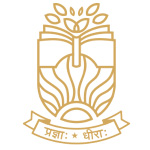Oceanography
Oceanography
Admission Enquiry
Oceanography
Admission EnquiryOceanography or marine science is a branch of Earth-Sciences which studies the oceans to understand processes within the oceans and enhance our knowledge further about the oceanic world. Many disciplines like biology, geology, chemistry, physics, meteorology and geography blend together in this science.
Oceanography constitutes various topics such as marine organisms, dynamics of ecosystem, ocean currents and waves, geo-physical fluid dynamics, plate tectonics, geology of ocean-beds, fluxes of different chemical substances and physical properties within oceans and across their boundaries.
The study of ocean engineering is important since it helps us understand global climatic changes, potential global warming and other related threats to our biosphere. Our atmosphere and oceans are linked by evaporation and precipitation; thermal flux, wind stress driving ocean currents and oceans supplying carbon dioxide to our atmosphere. Oceanographers first study exact-science or mathematics and then focus on applying their inter-disciplinary knowledge, abilities and skills into oceanography.
The study of oceanography is categorized into four branches, namely - biological oceanography, chemical oceanography or marine chemistry, geological oceanography or marine geology, and physical oceanography or marine physics.
Virupaxa K Banakar, Scientist and Head of HRD-SAC, National Institute of Oceanography said that not all oceanographers are required to dive. Even so, they dive in shallow waters up to a depth of 10-15 meters to study corals maybe. Oceanographers conduct studies in waters five to seven kilometers deep where humans can't go. This is overcome by sending down special equipment. He said that all studies are conducted using research vessels with adequate set-ups.
The data collected by oceanographers has many uses including marine engineering; designing and building oil-platforms, harbors, and ships which make life in/on the oceans safe for humans.
In India, approximately 500 oceanographers are involved in assignments in various national labs, government organizations and universities like NIO, CESS Thiruvananthapuram, NPOL near Kochi, NIOT Chennai, IISc Bangalore, SAS Ahmadabad, NRSA Hyderabad and NCOIS Hyderabad.
Oceanographers work in research programmes in India and abroad. Most institutes and universities for oceanography the world over have post-doctoral fellowship-PDF opportunities for individuals having a doctoral. Banakar said that every department under central government involved in scientific work provide opportunity for PDFs for up to three years based on selection or application by the aspirant. CSIR in particular offers 'Project Assistant Scheme' applicable to all 36 national labs wherein individuals having graduate, post-graduate or doctoral degrees are recruited for up to five years in the posts of project assistants/associates.
MTechs in ocean technology have work options in off-shore structures and platforms, laying and maintaining submarine pipelines, oceanic surveys, harbor and marine engineering, fish farm engineering, ocean material technology and acoustics and coastal area management in organizations like ONGC, Geological Survey of India, port-trusts, Research and Development Institutes or consultancy firms for ocean and environment. Banakar said that individuals having Masters Degree can also seek employment in private sector like survey organizations, manufacturers of anti-corrosive material and paints or providers of marine electronics and systems.
At entry level, scientists earn around Rs. 30,000 pr month while senior scientists earn almost Rs. 1 lakh per month. Scientific institutes give additional benefits like free medical facility; lave encashment after retirement and so on.
An oceanographer's job is adventurous and requires patience. One should feel at home in sea and have inquisitiveness in understanding functioning of oceans and earth systems. Observation and analytical skill and knowledge in using computers and programmes are vital since most oceanographers are concerned with collation of data for various purposes.






























